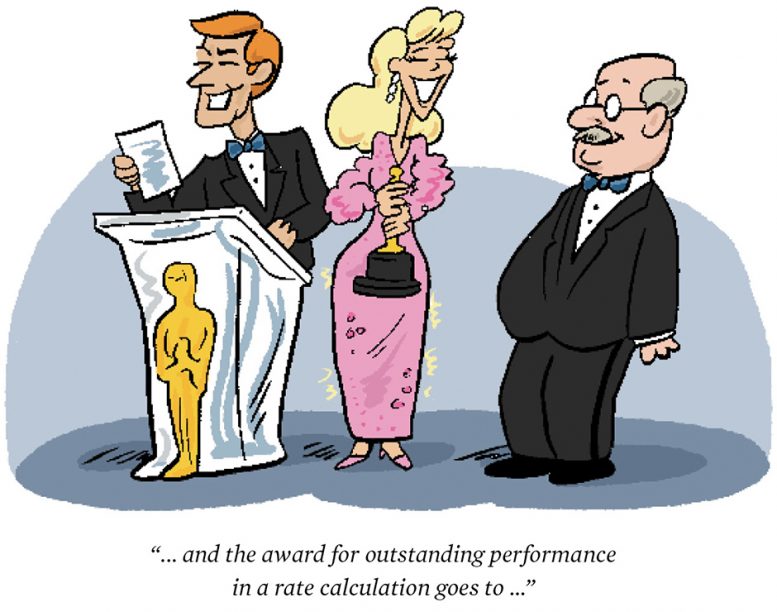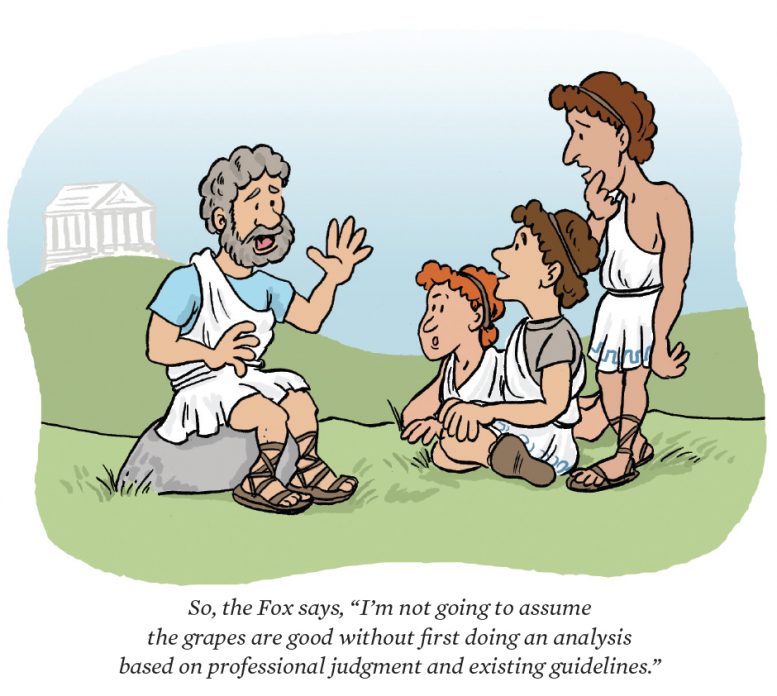It’s still a long time until the November 2020 elections, and we can expect a lot of political news before we reach the day itself. Health care, pensions, social insurance programs, and other issues of interest to actuaries will be discussed by politicians and reported on by the media. Politicians and pundits alike will be advocating for certain positions, and … Read More
The ABCD Goes to the Movies
Portrayals on stage or screen of actuaries often attract a lot of interest within the profession. Many will remember the 2002 film About Schmidt (loosely based on a 1996 novel of the same name that was not about an actuary). Many of us are also familiar with the 1976 BBC film Billion Dollar Bubble, which is based on a true … Read More
Exercising Professional Judgment in a Self-Regulated Profession
What is a profession? The Oxford Dictionary defines the word in part as “a paid occupation, especially one that involves prolonged training and a formal qualification.” The attributes of a profession, as broadly recognized in the United States, often include the following: (1) a formal educational system; (2) a national association; (3) a code of professional ethics; (4) public respect … Read More
Communicating Clearly With ASOP No. 41
Actuaries frequently go on ad infinitum over assumptions, methods, data, and other actuarial considerations. However, we should be just as concerned over how we communicate our results and these considerations to our intended audience and others. The immediacy of electronic communication has made it easier to communicate but probably harder to properly provide an actuarial communication. Let us see the … Read More
Feeling Conflicted? The Code Can Help
One important concept in the Code of Professional Conduct that guides members of the U.S. actuarial organizations is that of a conflict of interest. It is addressed by precepts 6 and 7. However, these precepts seem to presuppose that everyone knows what a conflict of interest is. This article explores what may, and what may not, be a conflict of … Read More
Hidden in Plain View—The Treasure Trove That Is the Academy’s Practice Notes
Many Academy members might be surprised to hear that counseling actuaries (the “C” in ABCD) is a more common activity for ABCD members than is discipline (the “D” in ABCD). For example, in 2017 Actuarial Board for Counseling and Discipline members replied to 104 requests for guidance from actuaries, while disposing of just 15 discipline cases. As an FCAS serving … Read More
If You Want to Grow Big and Strong, Eat Your Spinach
The other day at the gym, there was this guy wearing a T-shirt that read, “And planks don’t like you either.” For those who may not be familiar, a plank is an efficient exercise to strengthen your core in which you take a push-up position on your forearms, and hold. I am not particularly fond of them, but they are … Read More
A(E)SOP’s Fables
A fable is best described as a narrative that illustrates or leads to a particular moral lesson. While these stories may be entertaining, they also play an important role in passing along core values. Many famous fables are attributed to Aesop, a fable writer and slave in Greece during the fifth century BCE. Apollonius of Tyana, a first-century CE philosopher … Read More
Communicating Uncertainty: The Importance of Acknowledging Limitations
“I know one thing; that I know nothing.” If you recognize the quotation above as one commonly attributed to Socrates, congratulations. You are probably someone who does well in trivia contests. If you recognize the quotation as one that is commonly incorrectly attributed to Socrates, greater congratulations. You may well be someone who has had to dispel plausible but false … Read More
Know Your ASOPs
As members of any of the five U.S.-based actuarial organizations that has adopted the Code of Professional Conduct must know, Precept 3 of the Code states that: “An Actuary shall ensure that Actuarial Services performed by or under the direction of the Actuary satisfy applicable standards of practice.” For actuaries practicing in the United States, that means following the applicable … Read More










